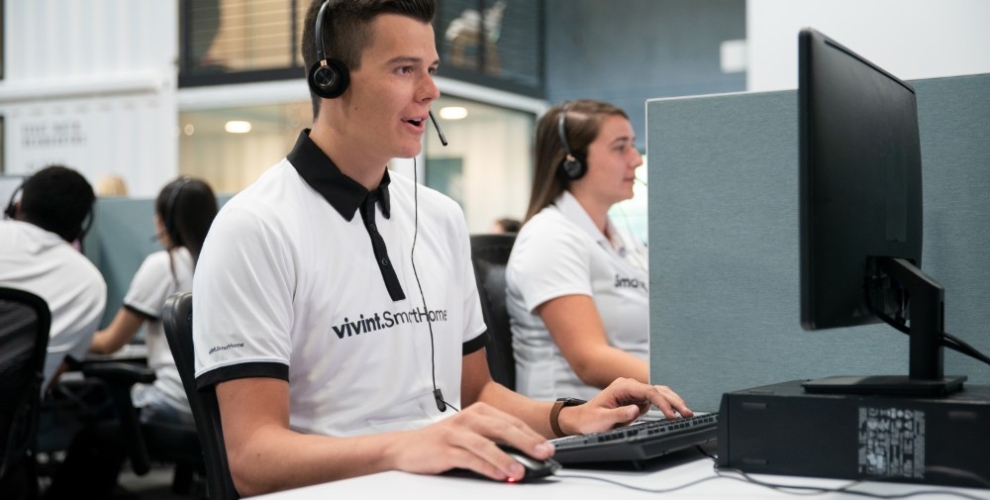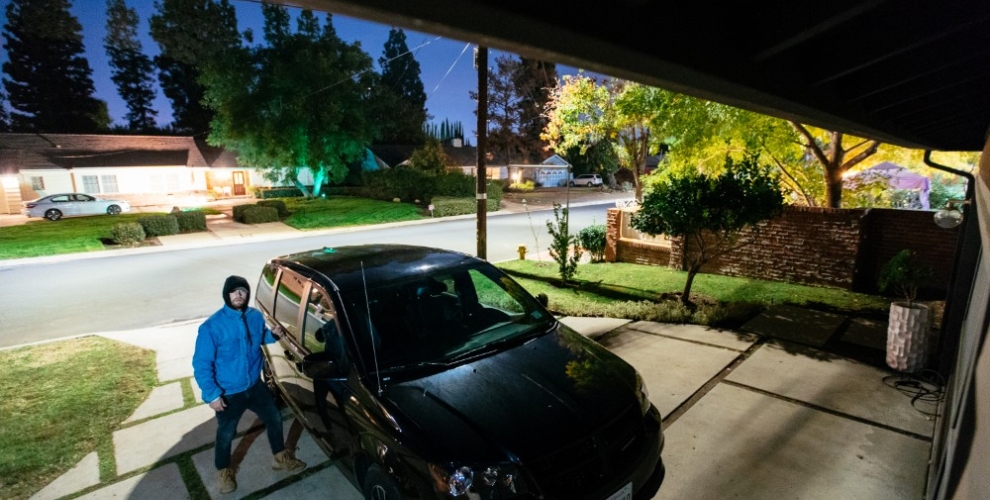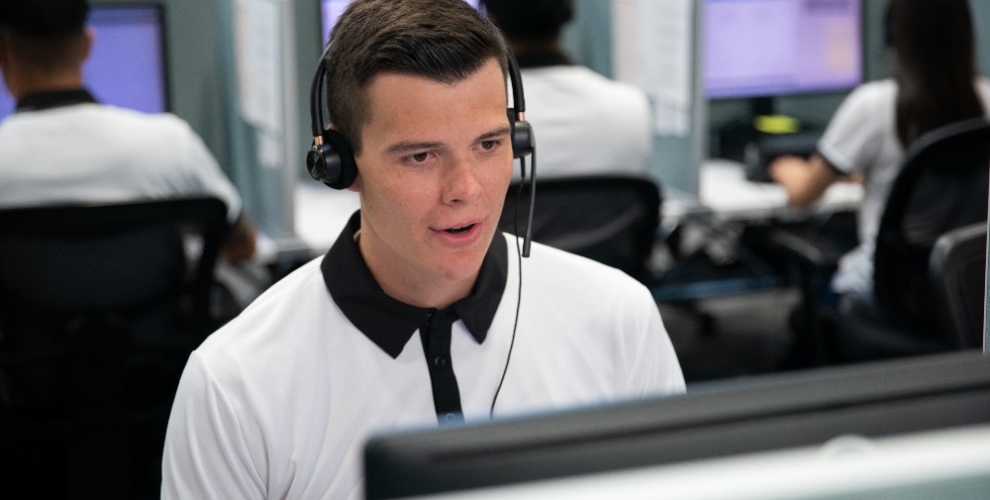If you worry about your home’s security, you’re not alone. A home security system is an extremely common investment among homeowners. Having an effective system in place can go a long way toward keeping the people in your life and your valuables safe.
There are many things to decide when getting home security system. One of the biggest decisions you’ll have to make is whether you need professional monitoring from a security company.
This guide aims to make it easier for you to choose between a monitored or self-monitored home security system. We’ll tell you how each type of system works and provide helpful information so you can make an informed choice.

How does a monitored home security system work?
When you have a professionally monitored system, you pay a monthly fee for a security company to respond to potential emergencies. The security company will try to contact you whenever a safety or security device is triggered. If you can’t be reached, they’ll automatically call emergency services, like the police or fire department, to visit your home.
Monitored systems are fully automated. They keep an eye on your home so you have peace of mind around the clock. A monitored system can protect your home in a number of different emergencies, from break-ins to fires to carbon monoxide leaks.
Here’s an example of how the system works: An intruder shatters your window, activating your glass-break sensors. Your home alarm system is activated and sends an alert to your security company’s call center. After a short waiting period, your provider contacts you to see if you’re OK. If you don’t answer, the company automatically calls the police department so they can investigate your home.
But what happens if there’s not a break-in? Let’s say your dog is running around your living room at night and triggers your motion sensors. When your monitoring team calls to make sure you’re alright, you give them your security code to stop them from calling the authorities. You disarm your alarm and go back to bed.
Sometimes, however, you may not be able to answer your phone. Let’s say your kids set off your smoke detector while they’re trying to cook French toast for your birthday breakfast. By the time the smoke alarm wakes you up, your monitoring service has already called the fire department.
While monitored systems offer the most dependable and convenient protection available, they may increase the likelihood that false alarms will cause emergency services to be dispatched to your home. But your monitored system will be there for you and your home at all times, keeping you safe and giving you peace of mind while you go about your everyday life.



